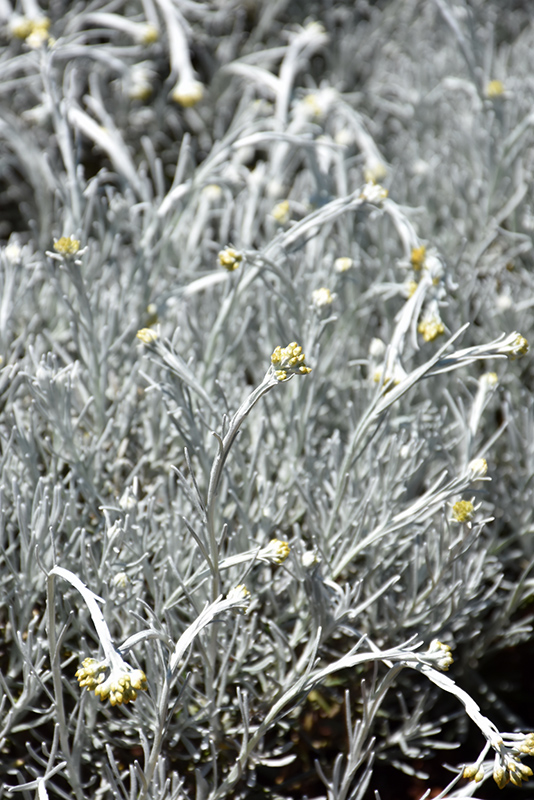Silverball Curry Plant
Description
A small, bushy evergreen shrub that produces curry scented silvery foliage topped with long lasting yellow flowers in summer; will not grow in shade and prefers some shelter
Landscape Attributes
Silverball Curry Plant is a multi-stemmed annual with a mounded form. It brings an extremely fine and delicate texture to the garden composition and should be used to full effect.
Silverball Curry Plant is recommended for the following landscape applications;
Planting & Growing
Silverball Curry Plant will grow to be about 18 inches tall at maturity, with a spread of 24 inches. When grown in masses or used as a bedding plant, individual plants should be spaced approximately 18 inches apart. Its foliage tends to remain dense right to the ground, not requiring facer plants in front. Although it's not a true annual, this fast-growing plant can be expected to behave as an annual in our climate if left outdoors over the winter, usually needing replacement the following year. As such, gardeners should take into consideration that it will perform differently than it would in its native habitat.
This plant should only be grown in full sunlight. It is very adaptable to both dry and moist growing conditions, but will not tolerate any standing water. It is not particular as to soil type or pH. It is highly tolerant of urban pollution and will even thrive in inner city environments. This is a selected variety of a species not originally from North America. It can be propagated by cuttings; however, as a cultivated variety, be aware that it may be subject to certain restrictions or prohibitions on propagation.
Silverball Curry Plant is a fine choice for the garden, but it is also a good selection for planting in outdoor pots and containers. It is often used as a 'filler' in the 'spiller-thriller-filler' container combination, providing a mass of flowers and foliage against which the thriller plants stand out. Note that when growing plants in outdoor containers and baskets, they may require more frequent waterings than they would in the yard or garden.

